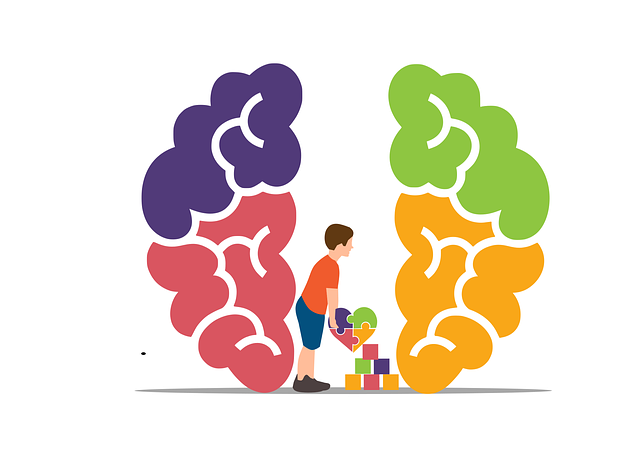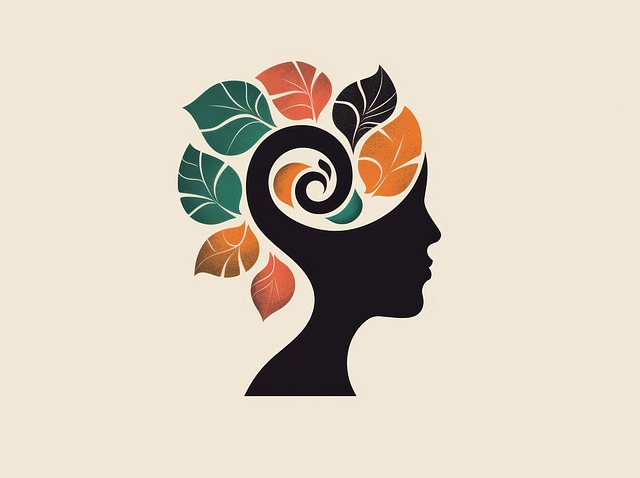Understanding postpartum depression (PPD) in elderly individuals requires specialized care due to age-related challenges and limited mental health services access. Effective therapy involves tailored emotion regulation strategies, addressing intense emotions like sadness, anxiety, and irritability. Mental Health Policy Analysis and Advocacy ensure adequate support through evidence-based practices and awareness among healthcare providers. Education and access to specialized treatment equip elders with emotion regulation skills, fostering resilience and improved mental well-being. Tailored interventions, including cognitive-behavioral therapy (CBT) and mindfulness practices, along with cultural sensitivity, are crucial for effective therapy. Teaching breathing exercises, mindfulness, physical activity, structured schedules, and social connections enhances mental wellness. Personalized communication strategies ensure ongoing emotional support, contributing to overall well-being and recovery for elders experiencing PPD.
Emotion regulation techniques are crucial for managing postpartum depression (PPD) in elders, who face unique challenges due to the impact of PPD on aging. Understanding these techniques is essential for healthcare professionals to provide effective therapy. This article explores common challenges in teaching emotion regulation to seniors and offers practical strategies for daily implementation and long-term support. By delving into these approaches, we aim to equip caregivers with tools to assist elders dealing with PPD, enhancing their overall well-being.
- Understanding Emotion Regulation for Elders with Postpartum Depression
- The Impact of Unmanaged Postpartum Depression on Aging Population
- Common Challenges in Teaching Emotion Regulation Techniques to Seniors
- Effective Therapy Approaches: A Guide for Healthcare Professionals
- Practical Strategies for Daily Implementation and Long-term Support
Understanding Emotion Regulation for Elders with Postpartum Depression

Understanding emotion regulation is crucial when addressing postpartum depression (PPD) in elders. This often overlooked population faces unique challenges due to age-related changes and the potential for reduced access to specialized mental health services. Elderly individuals experiencing PPD may exhibit intense emotions, including sadness, anxiety, and irritability, which can significantly impact their daily functioning and overall quality of life. Effective therapy for elders with PPD involves tailored strategies focused on emotion regulation.
Mental Health Policy Analysis and Advocacy play a vital role in ensuring that older adults receive adequate support. By implementing evidence-based practices and promoting awareness among healthcare providers, burnout prevention can be prioritized to offer sustainable care. Conflict resolution techniques may also be beneficial in managing the emotional turmoil associated with PPD. Through education and access to specialized treatment, elders can learn valuable emotion regulation skills, fostering resilience and improved mental well-being.
The Impact of Unmanaged Postpartum Depression on Aging Population

The aging population faces unique challenges when it comes to mental health, with postpartum depression (PPD) being a significant concern. Unmanaged PPD can have long-lasting effects on older adults, exacerbating existing conditions and impacting overall well-being. As the number of elderly individuals continues to grow, so does the need for tailored interventions. Therapy specifically designed for elders experiencing PPD is crucial in addressing this growing issue.
The consequences of untreated PPD in the aging population are far-reaching. It can lead to social isolation, cognitive decline, and increased vulnerability to physical health problems. Crisis intervention guidance becomes essential in recognizing and managing these symptoms early on. By incorporating mind over matter principles, elders can gain a sense of control and develop strategies to overcome depressive episodes. Additionally, confidence-boosting techniques can empower older adults to seek help and actively participate in their therapy, fostering resilience and improved mental health outcomes.
Common Challenges in Teaching Emotion Regulation Techniques to Seniors

Teaching emotion regulation techniques to seniors presents unique challenges, especially considering age-related cognitive and physical changes. Many older adults may struggle with adapting new strategies due to reduced flexibility in learning and memory retention, common issues associated with aging. Additionally, certain emotional regulations methods that are effective for younger individuals might not resonate as well with seniors, highlighting the need for tailored approaches.
Cultural sensitivity in mental healthcare practice is paramount when addressing these challenges. Elders from diverse backgrounds may have unique perspectives on emotions and coping mechanisms, influenced by their life experiences. Incorporating communication strategies that respect and embrace cultural differences can enhance the effectiveness of emotion regulation therapy. For instance, understanding the role of family dynamics in an older adult’s emotional well-being requires a sensitive approach, ensuring that interventions are aligned with their cultural values and support systems. Furthermore, burnout prevention is crucial for caregivers and therapists involved in teaching these techniques to seniors, as caring for the elderly can be demanding and emotionally taxing.
Effective Therapy Approaches: A Guide for Healthcare Professionals

Effective therapy approaches play a pivotal role in assisting healthcare professionals when supporting elders experiencing postpartum depression. This mental health condition often presents unique challenges due to the cultural and generational context, requiring tailored interventions. One successful strategy involves cognitive-behavioural therapy (CBT), which helps individuals identify and challenge negative thought patterns and behaviours associated with depression. By teaching practical coping mechanisms, CBT empowers elders to manage their emotions more effectively.
Additionally, mindfulness-based therapies have gained prominence in treating postpartum depression. These techniques encourage patients to focus on the present moment, fostering a non-judgmental awareness of their thoughts and feelings. Mindfulness practices, such as meditation and deep breathing exercises, can significantly improve mental wellness by reducing symptoms of anxiety and depression. Moreover, healthcare professionals should consider integrating these approaches while keeping in mind the importance of risk assessment for mental health practitioners and continuous mental illness stigma reduction efforts to ensure a supportive therapeutic environment.
Practical Strategies for Daily Implementation and Long-term Support

Teaching emotion regulation techniques can significantly enhance mental wellness for elders experiencing postpartum depression. Practical strategies for daily implementation include simple breathing exercises and mindfulness practices that can be easily incorporated into their routines. Encouraging regular physical activity, maintaining a structured schedule, and fostering social connections through community outreach programs are also effective approaches. These tactics not only provide immediate support but also foster long-term resilience.
For sustained improvement, consider integrating communication strategies tailored to the individual’s preferences. This might involve listening exercises, guided visualization techniques, or even participation in a mental wellness podcast series production designed for older adults. Such personalized methods ensure that elders receive ongoing emotional support, ultimately contributing to their overall well-being and recovery journey, especially when combined with professional therapy for elders with postpartum depression.
Emotion regulation techniques offer a promising path toward improving the quality of life for older adults experiencing postpartum depression. By addressing the unique challenges faced by seniors, as outlined in this article, healthcare professionals can effectively guide them towards managing their emotions and promoting overall well-being. Through tailored therapy approaches and practical strategies, it is feasible to provide long-lasting support for this vulnerable population, ensuring they receive the care they need to thrive despite the complexities of aging and mental health struggles. This comprehensive guide equips caregivers with the tools to make a significant impact in the lives of elders suffering from postpartum depression, ultimately enhancing their ability to navigate life’s challenges with resilience and emotional balance.














